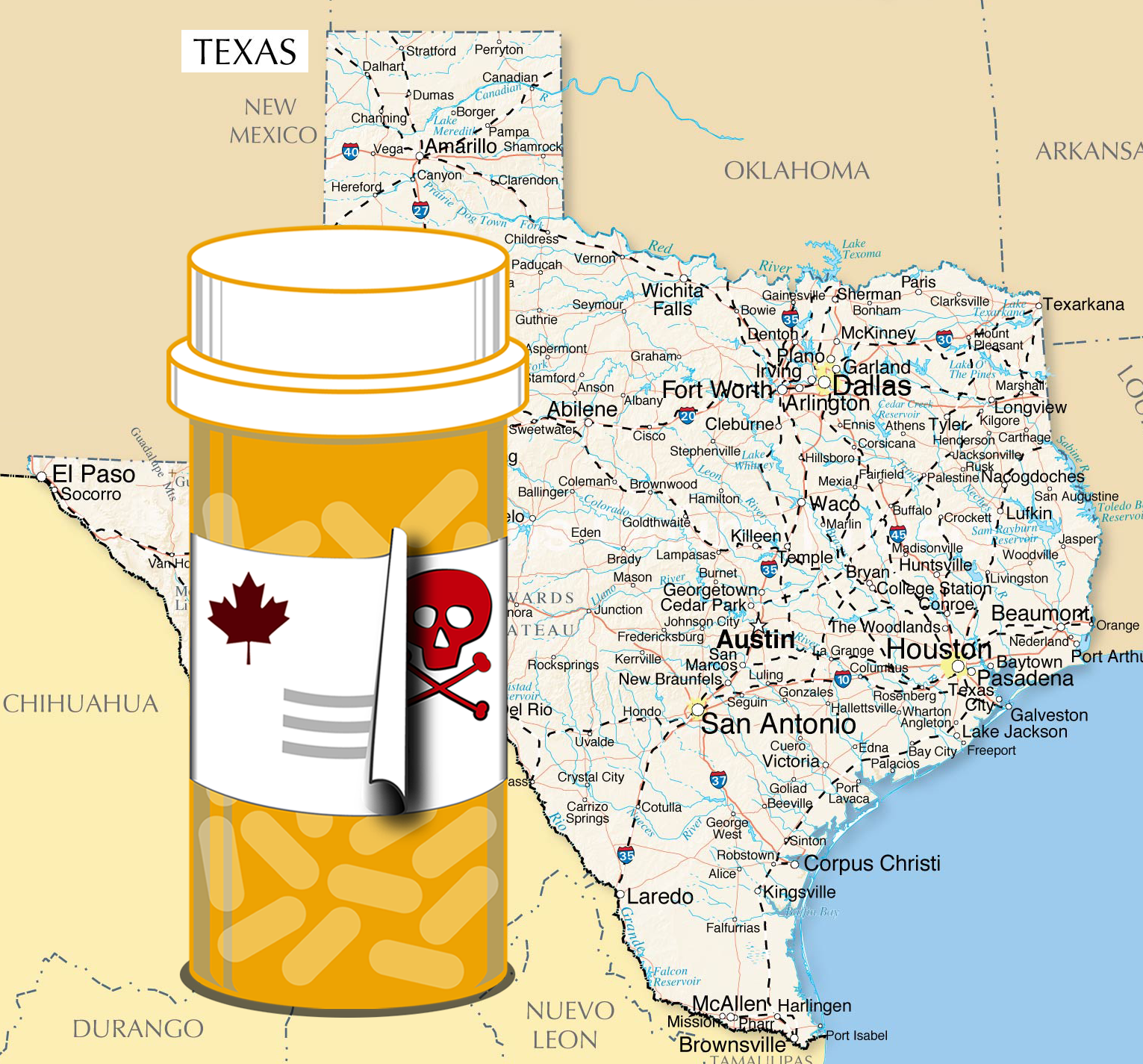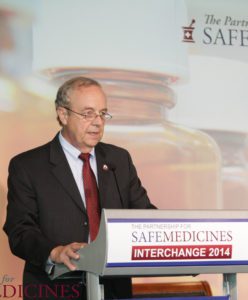Drug Importation in Texas: An Overview

Current status:
The Texas Legislature introduced House Bill 25, the Wholesale Prescription Drug Importation Act, in November 2022. PSM shared an analysis of the bill with the Texas House committee that you can read.
The bill which has been signed by the Governor, will require the executive commissioner of Texas's Health and Human Services Commission to take action to establish Canadian drug importation beginning in September 2023. The agency shared a report about the program in December 2023.
Synopsis / Media Contact
H.B. 25 requires Texas’ Health and Human Services Commission to design a program for bulk importing prescription medicines under 21 USC 384 of the U.S. Food, Drug, and Cosmetics Act, more commonly known as a Section 804 State Importation Program (SIP).
For over two decades these programs have proven to be impossible to build safely because:
- Canada refuses to release bulk medications to these programs and has taken steps to restrict U.S. access to their drug supply;
- Canada does not have a Track and Trace program;
- The cost of testing imported medication far outweighs the savings; and
- Medicaid programs already get medicine cheaper than Canadian provinces, reducing any potential savings.
This legislation has been pushed without concern for the consequences. As many states discovered during the pandemic trying to buy hard-to-find N95 masks, buying medical products that aren't readily available creates great risk of counterfeit products. PSM believes that the Texas legislature is forcing it's patients and pharmacists to take unacceptable risks with patient health and pharmacist liability by enacting this program without looking at the risks.
PSM Executive Director Shabbir Imber Safdar is available to do interviews to explain the risks of this program to media. Contact him through editors@safemedicines.org and specify your print deadline.
Official actions and statements
- December 1, 2023: Texas Health and Human Services submits its Wholesale Prescription Drug Importation Program Report to the governor and state legislature.
Planning documents
- HB 25: Text | Fiscal Note | Bill Analysis
Background / resources
Just learning about the Texas foreign drug importation proposal? Start with some of these resources that outline the safety issues.
PSM Materials:
Op-eds from the Experts
In this August 9, 2018 editorial for RealClearMarkets, Bill Martinez reminds Americans that the FDA hasn’t yet approved importation for a reason: it’s impossible to open the floodgates to foreign drug imports without cutting corners on safety.
While the Trump administration works to stem the raging epidemic of opioid addiction, Sen. Bernie Sanders, I-Vt., has a plan to make it worse. He calls it the Affordable and Safe Prescription Drug Importation Act, S. 469. This legislation would open our borders to the free flow of drugs – all drugs – from Canada and other countries.
It would be more accurate to call it the Unsafe Opioid Importation Facilitation Act – and we can’t afford it. Sanders is still peddling the bogus line that importing prescription drugs from Canada is the ticket to lower health-care bills for Americans. Not only has Bernie’s tonic been exposed as a fraud, it is downright deadly. Read more…
In a June 7, 2018 editorial for The Hill, Former FBI deputy assistant director and Pharmaceutical Security Institute President Thomas Kubic argues that current sentences and penalties are not strong enough to deter criminal drug importation: “It boils down to this, if an entity — be it an organization or person — opts to engage in activities involving illegal distribution chains, there should be consequences, often certain, swift, and overwhelmingly punitive.”
By approving the wholesale reimportation of U.S. prescription drugs from Canada, the Vermont Legislature passed an illegal measure that will not lower drug prices. Instead, it will subject Vermonters to public health risks and new taxes to defray an inevitable federal lawsuit.
A nonprofit executive wrote in this April 20, 2018 editorial that America needs to concentrate on keeping counterfeit drugs, including those made with fentanyl, from crossing our northern border just as much as the southern…
In a February 16, 2018 editorial for the Salt Lake Tribune, BioUtah President and CEO Kelly Slone explained that importing medicines from Canada would “open the door to dangerous counterfeit medicines,” and “dampen job growth in Utah’s vibrant, dynamic life-sciences industry.”
In this editorial, which was published in the Deseret News on February 11, 2018, economics professor Dr. Kristina Acri warns that drug importation will expose Utahns to dangerous counterfeit drugs.
“After more than two decades of studying the economic and health impacts of drug importation,” she writes. “the verdict on bringing drugs in from Canada is clear and consistent: It’s a risky gamble and one too dangerous to take. Experts know that preventing the introduction of dangerous counterfeit medicines cannot be guaranteed.”
This editorial by Dr. Yanira Cruz was published in Morning Consult on January 18, 2018. Cruz, who is the president and CEO of the National Hispanic Council on Aging and holds a doctorate in Public Health, writes that,
“For Hispanics, the notion of opening up our borders for imported drugs presents a particularly acute threat. Latino families are already afflicted with a ‘perfect storm’ of comparatively poor health and limited access to health care resources. Adding an increased threat of counterfeit – and potentially dangerous – drugs to that mix would be nothing short of devastating.”
Liz MacMenamin’s editorial was published in the Reno Gazette Journal on November 1, 2017. MacMenamin is is vice president of government affairs for the Retail Association of Nevada…
Oklahoma Pharmacists Association Director Debra Billingsley published an editorial on October 21, 2017 opposing drug importation proposals:
Now is not the time to allow foreign unlicensed pharmacies to start dispensing drugs into Oklahoma. It would just make it easier for drug traffickers or crooked providers to hurt our citizens.








